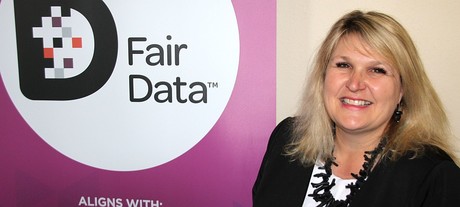Fair Data tackles privacy concerns

Researchers around the world face a growing problem. The data they collect is relied on by government, not-for-profits and business to improve services and products. However, members of the public are becoming increasingly reticent to hand over their personal information. More so after well-publicised breaches such as the harvesting of more than 80 million people’s Facebook profiles without consent during the Cambridge Analytica scandal.
This has been borne out in privacy studies, which show 80% of Australians want to know what personal information is being accessed, who is accessing it, and how to report and correct inaccuracies. (The Digital Rights and Governance Project at the University of Sydney surveyed 1600 Australians about their digital rights, the need for governance and the responsibilities of social media platforms. The findings are published in a report.)
About three in five Australians have chosen to avoid a business because of privacy concerns.
This is one of the reasons that the Fair Data mark has been launched in Australia this month.
Fair Data is an international trust mark that originated in the UK and has since been adopted in the Netherlands and Singapore. It has been brought to Australia by the peak body for market and social researchers, the Australian Market and Social Research Society (AMSRS).
Akin to the widely used Fairtrade mark, Fair Data enables consumers to take control of how their data is collected, processed and stored. They can know — before handing over their personal information to market and social research companies — that their personal details will be managed ethically and securely.

Each certified Fair Data organisation is independently audited annually by a registered certification body. Companies carrying the Fair Data mark must adhere to 10 principles when processing data. These cover consent, use, security, respect, protection, supply chain, procurement and training.
The 10 Fair Data principles comply with the Australian Privacy Principles (APPs); the AMSRS Code of Professional Behaviour; industry ISO standards; and the new European Union General Data Protection Regulation (GDPR), which was introduced this year.
The consumer logo is bold and its blue, orange and purple design is easy to recognise with a large D on it and the words “Fair Data”. Companies certified to carry the mark can be found at www.fairdata.com.au.
Critically, consumers can now make educated choices about their personal data. This will be welcome news to the nine out of 10 Australians who don’t want their information misused; most commonly through organisations they have not dealt with obtaining their information, companies revealing personal information to other customers or their own personal information being used for a purpose other than the one it was provided for. [Source: Community Attitudes to Privacy Survey 2017]
Until now, there has been no easy, instantly recognisable way to show that an organisation can be trusted to use people’s personal data in an ethical way. Fair Data’s principles set the highest ethical standards — important as Australian companies operate in a global market in a digital world where the processing of data crosses borders.
The Fair Data scheme gives the public confidence that research is carried out ethically, fairly and without unwelcome intrusion or disadvantage to consumers and participants of research. It will help government, businesses and not-for-profits, and will, in turn, benefit the entire community.
**************************************************
About the Australian Market & Social Research Society
The Australian Market & Social Research Society (AMSRS) is the peak body for research professionals in Australasia. It has a diverse membership of individuals at all levels of experience and seniority within agencies, consultancies, support services, client-side organisations, the public sector and the academic community. The AMSRS also has more than 50 company and client-side organisational partners.
AMSRS research professionals and company partners commit to and are regulated by the society’s Code of Professional Behaviour. The society provides a suite of professional and quality standards designed for the market and social research industry.
The AMSRS offers training, professional development and accreditation programs for research professionals within agencies, consultancies, client-side organisations, the non-profit and government sectors, institutions and academics in the Asia–Pacific region.
About Fair Data
Companies certified to use the Fair Data mark must adhere to 10 Fair Data Principles:
Consent. We will ensure that all personal data is collected with participants’/customers’ consent.
Use. We will not use personal data for any purpose other than that for which consent was given, respecting participants’/customers' wishes about the use of their data.
Access. We will make sure that customers have access to their personal data that we hold, and that we tell them how we use it.
Security. We will protect personal data and keep it secure and confidential.
Respect. We will ensure staff understand that personal data is just that — personal — and ensure that is treated it with respect.
Protection. We will ensure that the vulnerable and underage are properly protected by the processes we use for data collection.
Supply chain. We will manage our data supply chain to the same ethical standards we expect from other suppliers.
Procurement. We will ensure ethical best practice in personal data is integral to our procurement process.
Training. We will ensure that all staff who have access to personal data are properly trained in its use.
Reputation. We will not use personal data if there is uncertainty as to whether the Fair Data Principles have been applied.
Please follow us and share on Twitter and Facebook. You can also subscribe for FREE to our weekly newsletter and quarterly magazine.
The problem with passwords is not what you think
When it comes to secure authentication, there seems to be a lesson we're not learning.
Secure-by-design software development for digital innovation
The rise of DevSecOps methodologies and developments in AI offers every business the opportunity...
Bolstering AI-powered cybersecurity in the face of increasing threats
The escalation of complex cyber risks is becoming a pressing issue for those in business...







